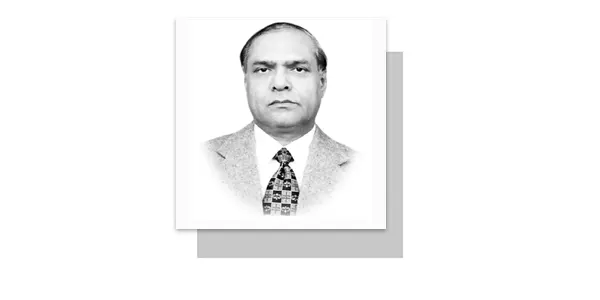MIGRATING to rich and developed countries for better opportunities and a higher quality of life is a primary motivation for people from poorer nations.
While some follow regular, safe migration paths, others opt for irregular, dangerous routes, risking their lives.
These individuals often fall victim to unscrupulous agents who deceive them with false promises of a better life abroad.
The reality, however, is far from ideal and sometimes tragic.
Those who follow legal, government-approved procedures face fewer risks, while those who rely on illegal agents often face unimaginable hardships, including death, drowning at sea, hostile immigration officials, subhuman refugee camps, and deportation.
The illegal migration process often leads to a nightmare, highlighting the crucial role of organizations like the UNHCR in offering protection and support to these vulnerable individuals.
According to UNHCR, which is tasked with providing help and assistance to migrants and asylum seekers, 234,000 new asylum-seekers were registered with UNHCR in North African countries in 2023, a 277% increase from 2022. 171,500 of them were Sudanese nationals, of whom 150,012 (87%) were registered in Egypt.
It is likely that the total number of people in need of international protection in North Africa was much higher: the Sudan situation alone triggered the arrival of around 409,000 Sudanese in Egypt and more than 20,000 Sudanese in Libya and an increase in onward movements of Sudanese was observed in other North African countries.
In 2023, 281,924 people departed from North Africa on dangerous and irregular sea journeys to Europe, 58% more than in 2022.
More than one in four (26.5%) were disembarked back in North African countries following a rescue and/or interception at sea.3,311 people were reported dead or missing at sea, compared to 2,674 people in 2022.
Italy, Malta and Spain registered 207,723 irregular sea arrivals, a 77% increase from 2022.
Almost half of those arriving were nationals of Egypt, Morocco and Tunisia.
UNHCR provided training and technical support to help the Governments of Italy, Malta and Spain to monitor and improve reception conditions and refugee status determination procedures.
Arrivals in Italy increased by 73%, with more than twice as many people sailing from Tunisia compared to 2022, but 12% fewer arriving from Libya.
Guineans, Tunisians, Ivorians, Bangladeshis and Egyptians were the most common nationalities, although there was a twentyfold increase in the numbers of Burkinabe arrivals and a fivefold increase in Malians and Sudanese.
UNHCR conducted 79 monitoring visits to facilities hosting displaced people in Italy and engaged authorities in over 1,000 protection advocacy interventions.
UNHCR also worked jointly with the municipalities of Bari, Milan, Naples, Palermo, Rome and Turin to launch the Charter for Integration (Carta per l’integrazione), wherein municipalities agreed to promote integration activities.
These include the creation of local multifunctional integration centres (Spazi Comuni), which offer services to refugees.
The network of private companies in the “Welcome Programme” was also expanded, supporting more than 20,000 refugees with job inclusion pathways and opportunities.
UNHCR also supported 8 new refugee-led organizations through the “PartecipAzione” network, which already comprised 60 organizations across the country.
Spain received 57,070 arrivals, a 91% increase. 40,329 (71% of Spain’s total) arrived in the Canary Islands, where most of the new arrivals had sailed from Senegal (19,015) or Mauritania (5,737), marking a new trend.
Following recommendations from UNHCR, the police authorities established a mechanism to facilitate access to asylum procedures in the detention centre on the Canary Islands, bringing a marked improvement in timely registration and improved reception conditions for arrivals by sea.
Departures from Morocco and Western Sahara to Spain also increased by 29%.
However, arrivals on the western Mediterranean route decreased by 18% to 16,741.
The most common nationalities among those arriving in mainland Spain were Senegalese, Moroccans, Algerians, Malians and Gambians.
UNHCR provided technical and financial support to three new refugee-led organizations (RLOs) in Spain and added 19 RLOs to the national network, bringing it to over 60 refugee-led and community-based organizations.
RLOs are essential partners in ensuring two-way communication with refugee communities, reinforcing information provision and identifying appropriate sustainable solutions to challenges and protection needs faced by refugees.
The Spanish RLO network identified protection risks and needs, informing UNHCR’s protection response and planning, and fostered an environment for information exchange, serving as a platform for capacity-sharing and networking among refugee-led organizations, which contributed significantly to the inclusion and empowerment of refugees and asylum-seekers.
Only 380 people arrived in Malta in 2023, while 817 arrived on the Greek island of Crete, having sailed from eastern Libya.
UNHCR conducted 63 visits to localities hosting displaced people in Malta in order to identify their needs, provide them with information, and make referrals, especially for the most vulnerable.
UNHCR also provided information and support for the inclusion and integration of refugees and asylum-seekers, including help with obtaining bus cards, opening bank accounts, preparing CVs, searching for jobs, applying
Though migrants, who reach Western borders, receive necessary help and assistance from UNHCR, but their future is shrouded with uncertainty about their future life, jobs, children education, housing and health care.
They face enormous challenges and few lucky ones ultimately have their dreams fulfilled.
Europe faces acute shortage of skilled workers due to ageing and negative population growth.
They need people to fill this gap.
They must adopt programmes to increase their population by inviting/recruiting skilled labour/workforce from countries like Pakistan, which has large number of available young, trained and dedicated workers to fill the gap which is hurting almost every European country.
—The writer is Former Civil Servant and Consultant (ILO) & International Organisation for Migration and author of seven books.
(mughal_rashid@hotmail. com)


















